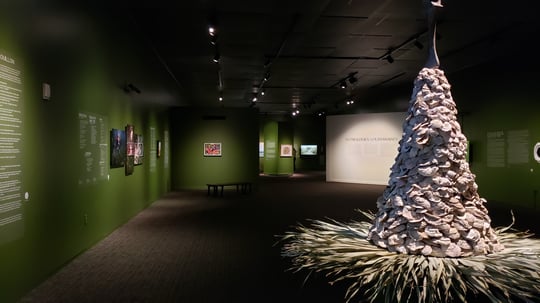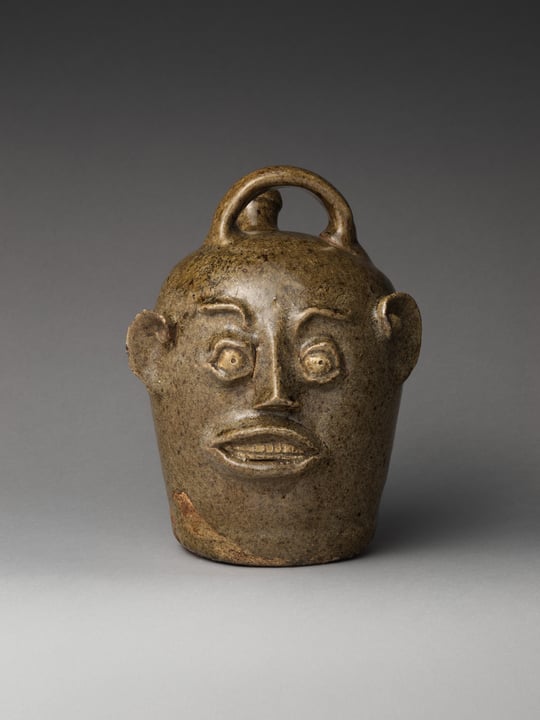
“Happy End” can be seen at the Springs Cinema and Taphouse in Sandy Springs, Feb. 16-22.
Austrian director Michael Haneke is in slow-burn mode in his latest feature, Happy End, a disturbing treatise on family and institutional corruption. Though his films often create an art house splash, Happy End has failed to register with the same impact of Haneke’s recent social commentaries, eclipsed by brighter, flashier filmic meteors like The Square and The Killing of a Sacred Deer. Instead, Happy End has the quiet and subtlety of Haneke’s 2012 Palme d’Or and Academy Award-winning Amour, for which it might be seen as a sequel of sorts, and none of the dystopian turmoil of Haneke’s more cataclysmic works like Caché and Code Unknown, which present the modern city as a vicious laboratory of economic, racial and social injustice.
At Happy End’s dry rot center is 13-year-old girl Eve Laurent (Fantine Harduin), an unhappy, affectless child emotionally abandoned by her parents. Her father has fled his marriage in what looks like a cycle of infidelity and her fragile, depressed mother has been circling the drain ever since.
Eve is left to raise herself, which in the modern realm translates to her being a feral child raised not by wolves but by technology. Social media in Haneke’s hands is a modern drug for both children and adults, and the expression of his characters’ alienation. Eve’s emotional succor and support comes from Snapchat and her cell phone, constant companions and confidantes.
As the film opens, Eve live streams her mother’s nightly bathroom routine. Like a zoo animal, her mother is trapped in the brutal, unblinking eye of Eve‘s cell phone crosshairs. For Eve the adults in her life have offered her nothing but abandonment and chaos and she strikes back with her full social media arsenal as well as a budding sociopath’s yen for secretly drugging friends and enemies.
As the film sinks in, the horror does too, of this sweet, pale little girl’s disturbing, complicated inner life which often surfaces in cruel ways. Haneke is a director of brutal honesty and in his films he gives us children with the same complexity and cruelty of the adults around them. With her pretty but blank expression, the justifiably self-involved Eve is the child version of her aunt Ann Laurent (Isabelle Huppert), another iron-willed force of nature committed to protecting her own interests at any cost.
The kind of cruelty and sadism casually meted out by children in novels like Herman Koch’s The Dinner or in Haneke films like Happy End, Benny’s Video and Funny Games are the chickens coming home to roost in Hanekeworld. In Haneke’s films, children’s violent tendencies are simply the result of adult inattention and neglect, and larger societal failings, rather than some innate, inexplicable malevolence. If Ingmar Bergman taught us to be sad about our existential plight as human beings, Haneke has taught us to be scared about the depraved wanderings of free will yoked to an often amoral society. His films are quiet, glacially paced horror films about the violence and cruelty hidden beneath a semblance of social order.
Eve’s salvation, if you could call it that, comes when she is welcomed into the bosom of her chilly, aristocratic Calais family after her mother’s suicide attempt. Ensconced in separate apartments in an elegant mansion, the family includes Eve’s doctor father Thomas Laurent (Mathieu Kassovitz), who seems distracted and oblivious to the gifts— a pretty young wife and new baby—laid out before him. The Laurents’ matriarch is Thomas’s sister Ann, the head of the family’s construction business who is frustrated that she is unable to hand it over to her unstable, business illiterate son Pierre (Franz Rogowski). The weak and feckless pseudo-patriarch, Ann and Thomas’s father Georges Laurent (Amour’s Jean-Louis Trintignant) is a wheelchair-bound husk, anxious to escape his vile clan.
Like director Douglas Sirk’s broken family dynasties, the Laurents are a family unused to introspection or a warm hand offered across the table. In their Calais home, the family is tended to by a Moroccan husband and wife who flit about like shadows, bearing trays of marmalade and tangines and mockingly paraded out by the drunken Pierre as the family’s “slaves.” Charm does not ooze from this family’s pores. Instead, the family’s main concern, from Eve to her aunt Ann, is self-preservation. Eve worries that her father’s wandering eye will mean abandonment yet again, this time to a youth home. And when an accident occurs at one of the Laurents’ construction sites, it isn’t the death of a worker but their own liability that consumes the family. Ann’s legal troubles suggestively lead her into a marriage with a high-powered lawyer and Pierre just wants to sing karaoke and get drunk in one of the most excruciatingly weird and memorable moments in Happy End.
The social origin of modern family unhappiness in Haneke’s films is slightly overshadowed in Happy End by a slightly soap opera sense that wealth is just a corrosive part of this family’s sad legacy: it has made them spoiled and negligent and blind to the truth of their lives. In other Haneke films, unhappiness incubates in social ills but in Happy End the Laurents are less reflections of the corrupt society they inhabit and more like bad seeds; an aberration more than the consequence of a society out of balance.
That’s not to say that Happy End is out of character. Certain favorite Haneke tropes repeat: the dysfunctional families helmed by distracted parents and emotionally neglected, unhappy children; the corporate malfeasance and soullessness of capitalism and the blindness and occasional disdain for the invisible “Other” in urban life: immigrants, refugees, black people, the poor.
Like another international art house wonder, Greek director Yorgos Lanthimos (The Killing of a Sacred Deer), Haneke in Happy End is interested in family as metaphor. For both directors, family is often both a social microcosm, and an alternate reality defined by the strange codes, power relations and secrets that define it.
In a recent New Yorker article, writer Richard Brody lamented the “unfortunate influence of Michael Haneke” on the careers of Lanthimos and Swedish director Ruben Ostlund (The Square). Brody eye-rolled over what he perceived as a directionless, elitist form of nihilism in Haneke’s and those directors’ films, “lacking artistic originality to propose or effect a shift in consciousness or a new mode of experience, they offer a constipated realism that rubs others in their filth while keeping their own hands rigorously pristine.” Brody seems to expect artists to be in the business of social work, obliged to offer an 800-number at their film’s conclusion, to address the social ills they recount. Brody suggests Haneke’s despair is some affectation of the educated middle class rather than the appropriate response of any sentient being to the world we occupy. In truth, Lanthimos, Haneke and Ostlund have all levied powerful attacks on sacred institutions in their films, from the microcosmic family to the macro actions of modern democracies, currently lifting the metaphorical drawbridge, proposing walls and immigrant quotas to keep the world at bay.
Perhaps part of Happy End’s less satisfying effect after so many Haneke films that bore under your skin and eat away at your peace of mind for weeks after may be that any beautifully choreographed, ordinary nightmare Haneke can concoct these days is beginning to pale next to the escalating horror of daily life on planet Earth. In fact, it’s beginning to look like no amount of Haneke degradation can rival the increasing depravity of the real world with human trafficking, genocide, endless war, first and third-world predation on women and children, right-wing hate speech making inroads into Europe and America and corporate robber barons feeding off the increasing misery of the 99%. If anything, for all its shocks, Happy End can feel relatively toothless compared to the utter despair that occasions the evening news.





